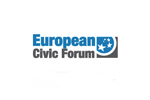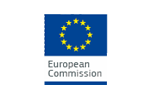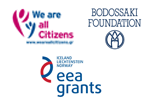The overall objectives of Capacities 4 Climate Change were youth workers and youths in Germany, Spain, Greece, Ecuador, Mexico, Chile, and throughout the European Union and Latin America grasp, to understand, reflect and communicate the importance of local, regional and global climate adaptation needs, policy and strategies and that they are enabled to develop competences and to take up responsibility for the importance of young people’s active role in shaping the pathways for the upcoming transformation processes towards climate adaptation.
The specific objective of C4CC was therefore to develop and realize a three-step e-learning and encounter-based capacity building for youth workers and young multipliers focusing on the so-called “transmedia storytelling”. The capacity building and its respective workshops and activities were embedded in the production of a set of communication products made by the participants, professionally supported by the project partners and external experts.
The project supported competence development for the translation of complex and complicated issues and incentives into adequate and new formats, messages, metaphors and symbols of young people’s communication cultures.
To contribute to the objective a capacity building activity developed and implemented. Trainers were trained. The blended learning modules were focused on transmedia storytelling, social entrepreneurship towards a proactive climate culture based on informal and non-formal learning arrangements.
Two major face-to-face encounters took place, in which youth workers, peer-leaders and members of the partner organisations plan, realized and underwent the capacity building together with additional participants and experts from the hosting countries. During these face-to-face periods where all six countries met up, strong added value came up towards a better integration of youth into implementation of EU strategies and into spreading the respective messages from the global South as well as from already affected (Greece, Spain) and seemingly advanced countries (Germany) which regard to climate management.
Through self-directed and self-oriented learning and the strategic use of communication formats for young people, the participants not only empowered themselves but also claimed to take up leadership towards a broader sensitization of their peers, meaning to take up their share of responsibility for climate adaptation.
The project was co-financed by Erasmus Plus - KA2 Cooperation for innovation and the exchange of good practices -Capacity Building in the field of Youth







